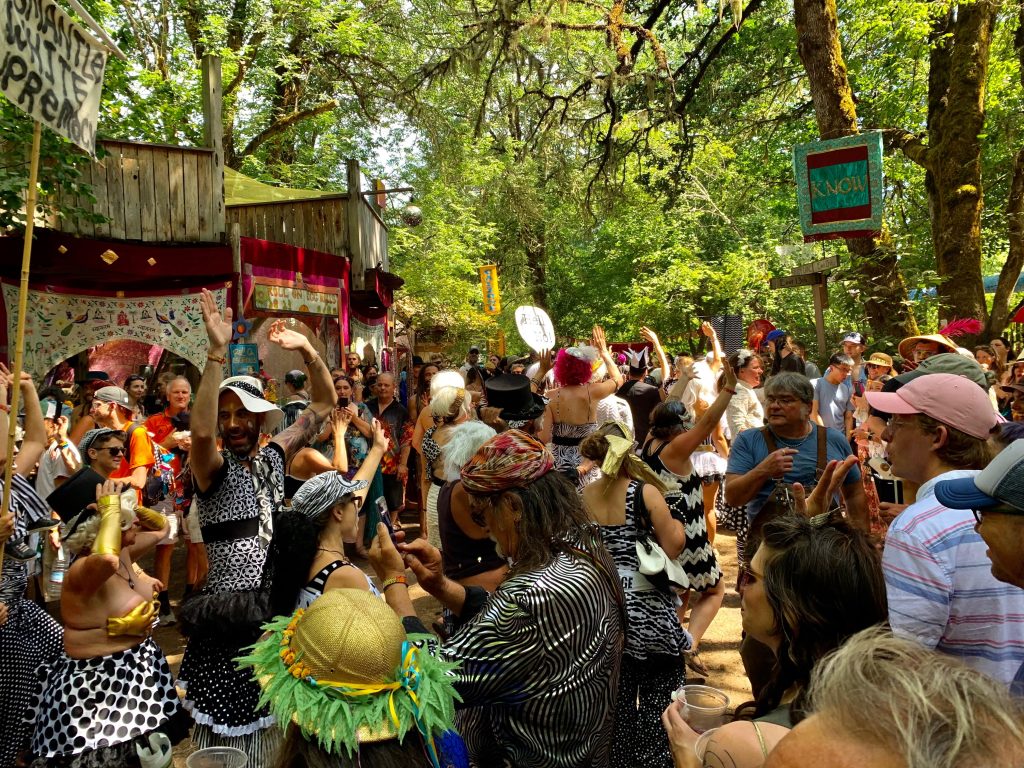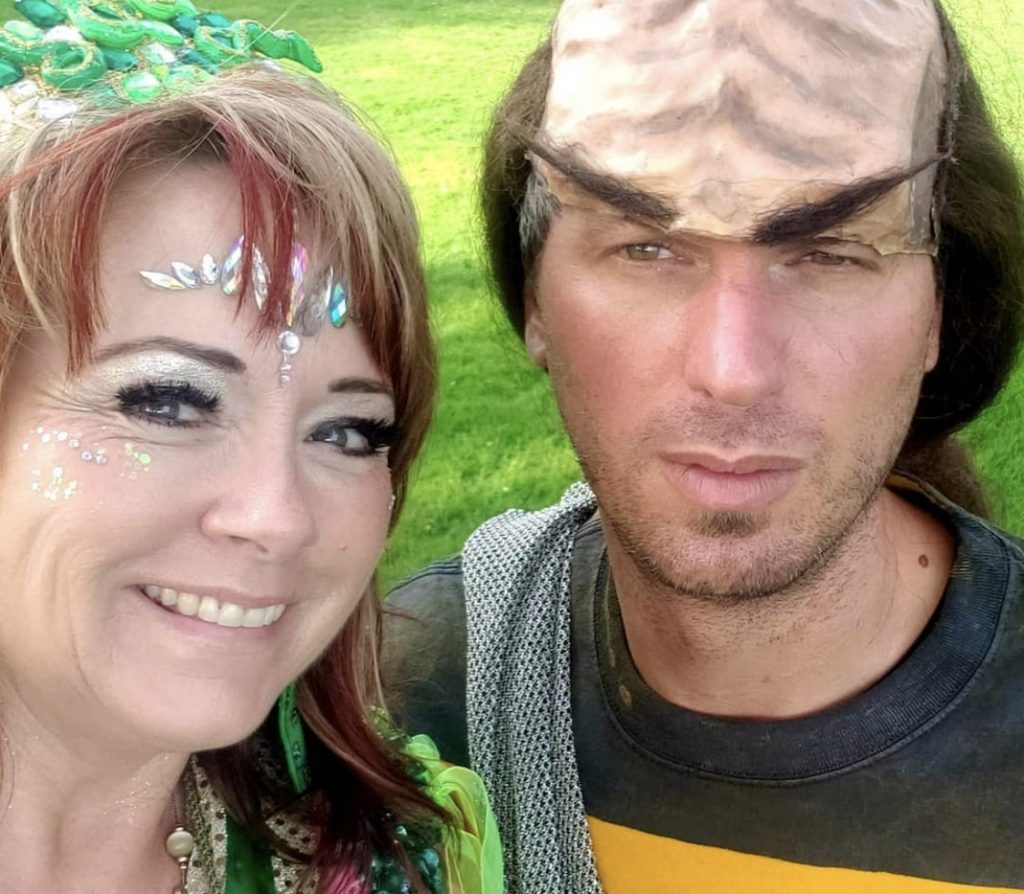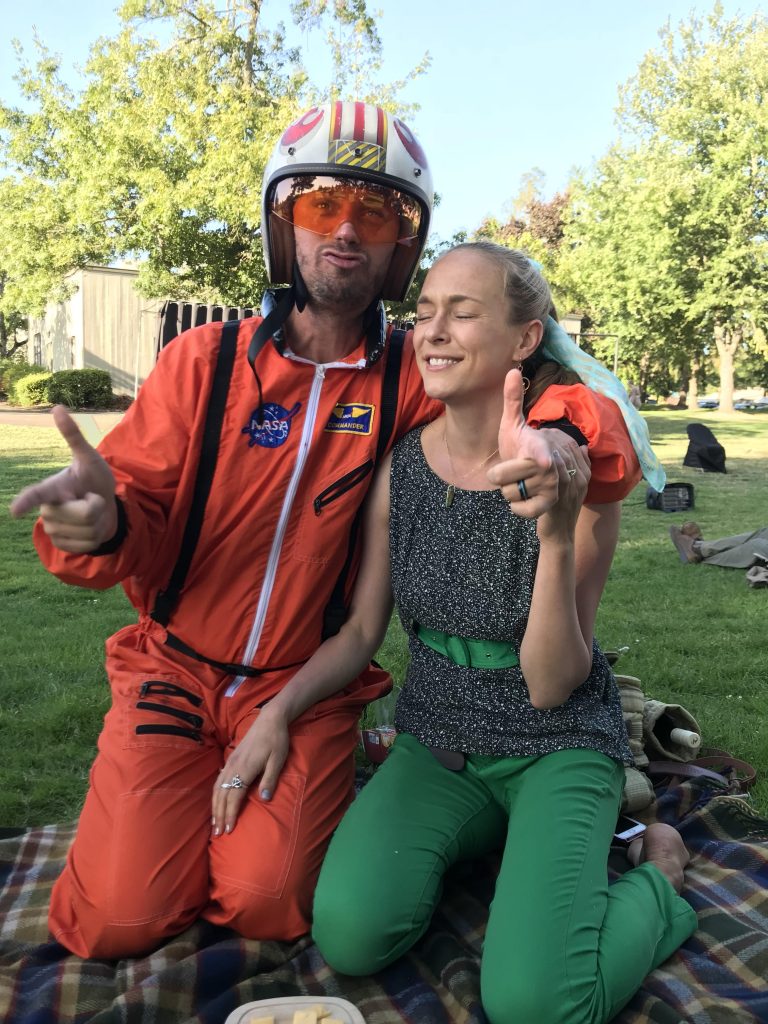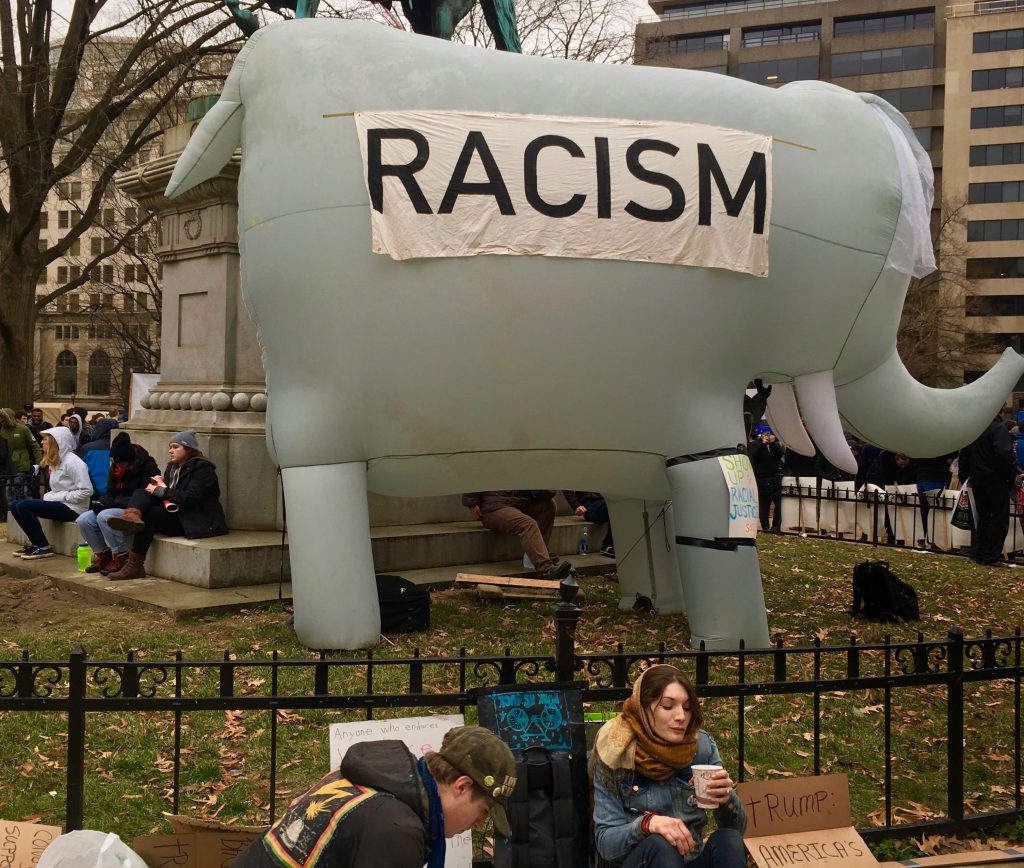
When I lived in San Francisco, I was a consumer of culture rather than a producer. I went to museums and live music shows regularly, soaking in some of the best talents in the city. Although I’d take pictures of paintings I admired or dance to funk and gypsy jazz, I was always one step removed from the artistic process—a respectful observer rather than a true participant. It never occurred to me to pick up my guitar and try to join a band, submit my own acrylic paintings to art galleries, or audition for a play; I was always more comfortable in an audience.
Eugene, OR has a much different relationship with creatives. If you have a desire to make something or perform—no matter how niche or obscure—you can find a loving supportive group of fellow enthusiasts.
My husband, Jon, found a home in Star Trek Live Theater, a motley crew of Eugenians who looked up to the show’s trailblazing characters and utopian view of civilizations. Although I didn’t watch Star Trek growing up, the actors here bring a homespun tenderness to the stories. Since they’ve been performing together for years, it’s also a strong community of friends who see each other through life’s varied mountains and valleys—both the triumphant and the depressing moments outside of the stage.

Last Friday, on the invitation of the Star Trek Live sound engineer, Jon performed in the First Annual Edward Gorey Ball—a costumed celebration of dark art and poems. I hadn’t heard Gorey’s work until Jon would rehearse lines from “The Gashlycrumb Tinies” at home:
A is Alice, who fell down the stairs.
B is for Basil, assaulted by bears.
The ball was held at Spectrum, Eugene’s LGBTQ bar and one of the best spots for nightlife in the city. In addition to some readings and a bit of Gorey’s history, there were burlesque dancers, contortionists, and two cello players.
It was actually the juggler who inspired me to write this piece (for whom I’ll use the pronoun “they” to avoid assumptions about gender identity). Before their performance, they walked to the front row of the audience—long knives in hand—and warned the crowd that objects might come flying in their direction. The front row, bedazzled in black lace, dark sequins, and shiny leather, smiled and said it was cool.
The juggler took to the stage in a checkered harlequin costume. They began juggling three skulls to music. They dropped a skull once, twice—three times!—and every time, the spherical reminders of our mortality went bouncing into the front row as predicted. The juggler then picked up the knives and with great enthusiasm, tossed the blades into the air until one dropped and bounced into the front row. (Not to worry! Performance blades are dulled.)
What I noticed throughout this performance was how everyone cheered with loud encouragement every time the juggler made a mistake; it didn’t matter that skulls and long knives were literally bouncing into the shins of the audience. People just wanted the juggler to feel the love and keep trying.
That’s the creative lifeblood of this community—The Little Eugene That Could with her unflappable “I Think I Can” attitude. No matter your level of talent in any arena, there is a friendly audience waiting to cheer you on through your artistic process.
In addition to countless creative classes at the University of Oregon and Lane Community College, Eugene has:
- Open Mic Nights for comedy, poetry, music, and performing arts
- Toastmasters (a group to improve one’s public speaking)
- Danceability (dance classes for differently-abled people)
- Pub Science Talks (scientists lecturing at a brewery on something cool)
- Multiple not-for-profit community theaters
- Monday Improv (a beginning improv group that gathers weekly)
- First Friday Art Walks (artists connecting with downtown businesses to put their work on display for the night)
- The Saturday Market (the country’s longest-running weekly open-air market for artisans and farmers)
- Sunday Learners Jam (an opportunity for beginning musicians to join a group at a local jazz club)
This list really only scratches the surface and a lot of these events are free or low-cost.
One thing I noticed about San Francisco was that the wealth had begun to stifle the local culture; not only had the city become unaffordable for teachers, social workers, and janitors, but it had pushed out a lot of musicians, painters, and performers as well. Some moved to Oakland—until that city also became out of reach—and now there’s a migration to midsize cities like Eugene, which has attracted many of Portland’s priced-out artists.
What happens to communities when culture is forced to leave? Sure, apps and tech are cool, but so is thriving artistic energy. That old art collective suddenly becomes a tapas restaurant; that dive bar with weekly open mics makes way for a swanky cocktail joint; that family-owned bookstore turns into yet another coffee shop which charges $6.50 for a pour-over.
The point is that the free market is not a good arbiter of culture. It’s designed not to expand people’s minds, but rather to play to their baser instincts: greed, status, indulgence, intoxication. There are few companies that would truly put cultural value (not to mention environmental or public health) above their bottom line. It’s not their fault; that’s just the way the system works.
Good art and culture aren’t always comfortable. They force people to stretch their presumptions and make space for a new perspective. This makes people more empathetic and generous, more galvanized in the face of injustice. The free market doesn’t have those objectives, although some companies would like to think of themselves that way and commodify culture to increase their bottom line.
Overall, when everyone is too damn busy on the endless hamster wheel of modern work, a city begins to die a little. People stop looking you in the eye and step over unconscious bodies in SoMa; tent cities of the evicted and mentally ill take over once-peaceful blocks; deaths of despair skyrocket as the city becomes both glitzier and grimier.
I’m grateful that Eugene has its heart in the right place. Many people who grow up here return after a few years living somewhere else. There’s just nowhere like it. Strong local leadership and shared values helped to steer Eugene toward embracing everything that makes life worth living: art, community, natural beauty, generosity, kindness, and simple pleasures.
Here, I won’t think twice about submitting my art to local galleries, picking up my guitar, or getting silly with an improv group. I Think I Can.











